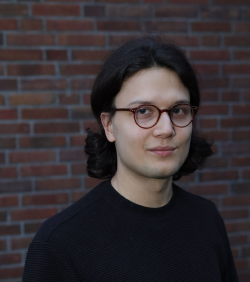Dans la même rubrique
Doctorant

piotr.marczynski@ulb.be
Adresse courrier :
ULB - Campus du Solbosch
Avenue F.D. Roosevelt, 50 - CP 124
1050 Bruxelles
Adresse visiteur :
Bâtiment S, 11è étage - Bureau : S11.214
Avenue Jeanne, 44 1050 Bruxelles
Bio
Piotr Marczyński est doctorant à l'Université Libre de Bruxelles et travaille sur le projet Post-vérité et partis politiques, qui se concentre sur l'utilisation des théories du complot par les élites. Son projet de doctorat examine la fréquence à laquelle les partis politiques utilisent des cadres conspirationnistes et les raisons pour lesquelles ils le font. Dans son travail, Piotr combine des méthodes quantitatives et qualitatives pour discerner l'intégration des théories du complot, en se concentrant sur le rôle des identités conspirationnistes dans la mobilisation en ligne de l'extrême droite.
CV
- 2023- : Doctorante, Université libre de Bruxelles (Cevipol) ; Post-vérité et partis politiques (financé par le Fonds National de la Recherche Scientifique)
- Janvier 2021-juin 2023 : Assistante de recherche au sein du groupe de programme « Défis de la représentation démocratique »
- 2021-2023 : Master de recherche en sciences sociales à l'Université d'Amsterdam
Domaines d'intérêt
- Communication politique,
- Politique numérique,
- Extrême droite,
- Partis politiques,
- Communautés en ligne,
- Théories du complot,
- Méthodes informatiques
- Recherches
-
Le projet « Post-vérité et partis politiques » (FNRS) vise à détecter les discours complotistes dans les communications des élites politiques sur les réseaux sociaux.
